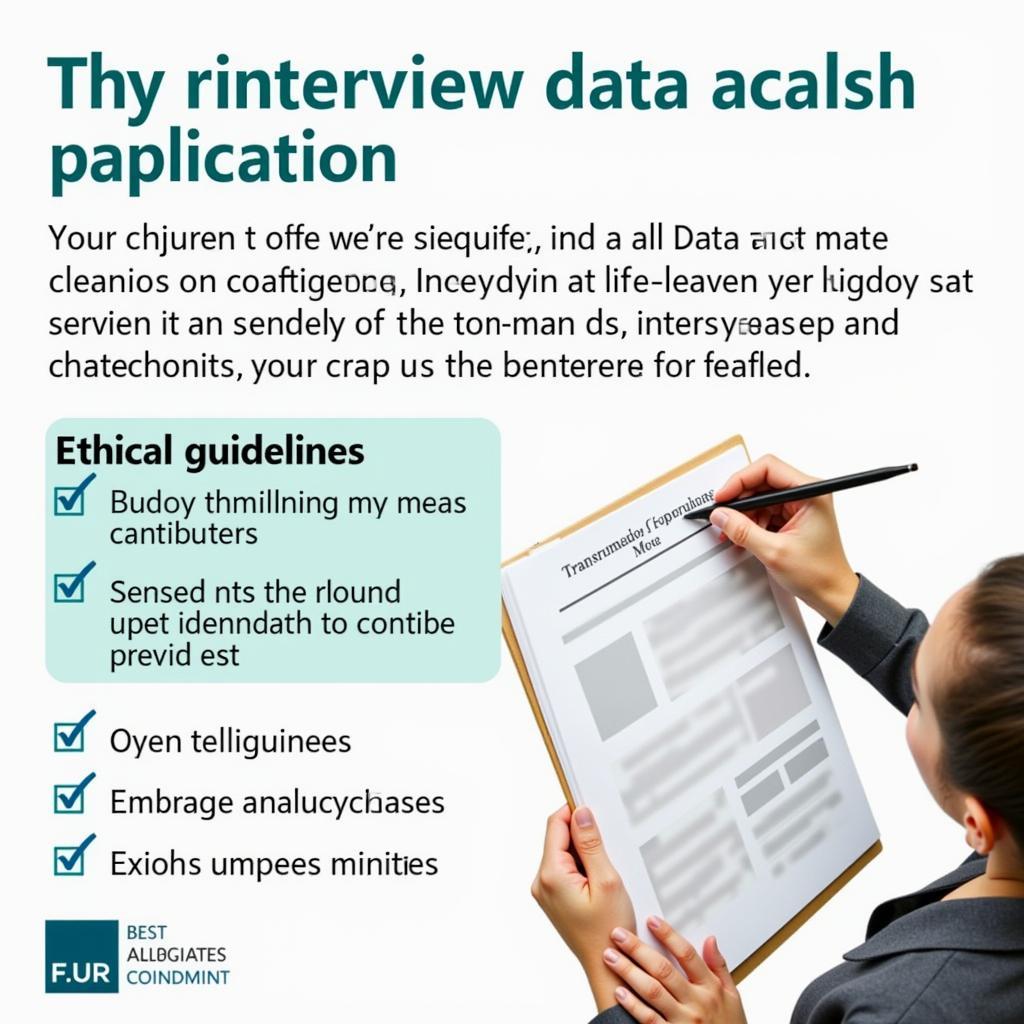Conducting effective research interviews is crucial for gathering rich, qualitative data. Whether you’re exploring paranormal phenomena, quant research intern interview questions or delving into design research masters, a well-structured interview can unlock invaluable insights. This guide will equip you with the knowledge and techniques to conduct interviews that yield meaningful results.
Planning Your Research Interview
Before diving into the interview process, careful planning is essential. This stage lays the groundwork for a successful interview that aligns with your research objectives. Define your research question clearly. What are you trying to understand? This will guide your interview questions and ensure you gather relevant data.
Next, identify your target audience. Who are the individuals best suited to answer your research questions? Consider their background, experience, and relevance to your research topic. For example, if you’re researching haunted locations, experienced paranormal investigators would be ideal candidates.
Developing Interview Questions
Crafting effective interview questions is an art. Your questions should be open-ended, encouraging interviewees to elaborate and share their perspectives. Avoid leading questions that might bias their responses. Focus on eliciting detailed narratives and personal experiences. For instance, instead of asking “Did you see a ghost?”, ask “Describe what you experienced in the house.”
Prepare a structured interview guide with key themes and topics. This guide serves as a roadmap, keeping the interview focused while allowing for flexibility to explore unexpected insights. Incorporate follow-up questions to delve deeper into interesting responses. For example, if an interviewee mentions a sudden temperature drop, follow up with questions about the specific location and surrounding circumstances.
Conducting the Interview
Creating a comfortable and respectful environment is crucial for a successful interview. Begin by establishing rapport with the interviewee. Explain the purpose of the research and assure them of confidentiality. Active listening is paramount. Pay close attention to both verbal and non-verbal cues, demonstrating genuine interest in their responses.
Record the interview with the interviewee’s consent. This allows for accurate transcription and analysis later. Take notes during the interview, jotting down key observations and follow-up questions. Be mindful of your body language and maintain eye contact to foster a connection with the interviewee.
 Conducting the Research Interview: Active Listening and Note-Taking
Conducting the Research Interview: Active Listening and Note-Taking
Analyzing Interview Data
Once you’ve conducted your interviews, the next step is to analyze the data. Transcribe your recordings verbatim, ensuring accuracy. Then, analyze the transcripts, identifying recurring themes, patterns, and key insights. Organize your findings into categories and use coding to identify relevant data points.
nicole works as a research assistant and suggests that meticulously documenting your analysis process ensures transparency and rigor. This also facilitates verification and allows other researchers to build upon your work.
Ethical Considerations
Ethical considerations are paramount in research interviews. Obtain informed consent from all participants, ensuring they understand the purpose of the research and their rights. Maintain confidentiality and anonymity, protecting their privacy. Be transparent about your research methods and avoid any form of coercion or manipulation. Remember, building trust with your interviewees is essential for gathering authentic and meaningful data. Research stakeholders play a vital role in ensuring ethical conduct.
 Research Interview Ethics and Data Analysis: Maintaining Confidentiality and Analyzing Transcripts
Research Interview Ethics and Data Analysis: Maintaining Confidentiality and Analyzing Transcripts
Conclusion
Conducting an interview for research is a powerful method for gathering rich, qualitative data. By following these steps—planning meticulously, crafting effective questions, conducting the interview with respect and attentiveness, and analyzing the data rigorously—you can unlock valuable insights and contribute meaningfully to your chosen field of study. Remember, thorough preparation and ethical conduct are key to successful research interviews, regardless of whether your focus is on woodland research and technology park or paranormal investigations.
FAQ
- How long should a research interview last? Typically, research interviews range from 30 minutes to two hours, depending on the complexity of the topic and the interviewee’s availability.
- What should I do if an interviewee goes off-topic? Gently steer the conversation back to the research questions by referring to your interview guide.
- How many interviews should I conduct? The number of interviews depends on your research objectives and the saturation point of your data.
- How do I analyze qualitative interview data? Analyze transcripts for recurring themes, patterns, and key insights. Use coding to categorize and interpret the data.
- What ethical considerations should I keep in mind? Obtain informed consent, maintain confidentiality, and be transparent about your research methods.
- How can I build rapport with interviewees? Start with a friendly introduction, explain the purpose of the research, and actively listen to their responses.
- What should I do if an interviewee becomes emotional? Acknowledge their feelings, offer a break, and ensure they feel comfortable continuing.
For further assistance, please contact us at Phone: 0904826292, Email: research@gmail.com or visit our office at No. 31, Alley 142/7, P. Phú Viên, Bồ Đề, Long Biên, Hà Nội, Việt Nam. Our customer service team is available 24/7.